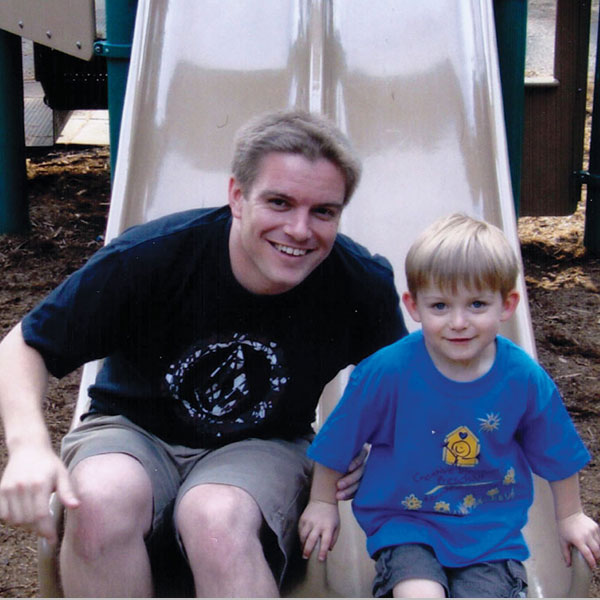Our son’s birth father was the type of expectant dad that I imagine social workers love. Kenneth supported his girlfriend Ann’s decisions at every step of her pregnancy, both in the beginning, when she considered parenting, and later, when she turned to adoption. He attended every meeting and signed whatever he needed to sign without complaint. Kenneth was so agreeable that my husband, Tom, and I wondered whether he was emotionally invested in his child. We worried about what placement would be like for Ann, but never really worried about Kenneth.
The night Caleb was born, it was Kenneth who called us in. It was after midnight, and my husband and I, along with a group of Ann’s family and friends, had been at the hospital for hours, marking the time that Ann spent in the delivery room. When the nurses decided her labor would probably stretch on until morning, Tom and I stepped out to a nearby waiting room for a moment. We had barely settled into the uncomfortable chairs when Kenneth burst into the room.
“You guys have to come right now, the baby’s coming,” he said, with a huge grin on his face. I accused him of pulling our legs. No, he assured us, his eyes wide. It was time.
The plan was never for us to be in the room for Caleb’s birth. But when the time came, Ann sent Kenneth to get us, and the doctor shrugged and threw up his hands. It was a privilege to watch Caleb come into the world, and I will forever associate this moment of grace with Kenneth’s smiling face, as he motioned us forward.
There are pictures from that night that I treasure. One is of Kenneth, holding Caleb. His head is turned toward the camera, but his eyes are fixed on the baby, who is resting in the crook of his arm. His look of joy and pride, and the tears running down his face, express his love for his son more than words ever could. “Every one of us cried the night you were born,” I sometimes tell Caleb when we look at that photo. “We were all so happy to meet you.”
Soon after the photo was snapped, Kenneth turned to me and asked if I wanted to hold the baby. He was the one who first handed Caleb to me, our arms overlapping as he transferred the bundle of baby and blankets. I watched him cry again a few days later, when Ann and Kenneth handed Caleb to us one last time as we left the hospital.
Birth dads and birthdays
Over the last four years, Tom and I have watched Kenneth wrestle with the complicated task of being a birth father in an open adoption. Although we live in different states, we see each other once a year or so, meeting up when we’re near his town or having him stay at our home for a few days. He is wonderful with Caleb, playful and nurturing, and they adore each other. “This is my Kenneth,” Caleb proudly tells us.
But between visits, something changes. Kenneth and Tom exchange occasional phone calls, but months can go by with no contact. The valentines and Fathers Day cards that Caleb makes sometimes go unacknowledged. Some of Caleb’s birthdays have passed without hearing from him.
Our culture tells us that good dads provide. They protect, they are present. Kenneth once confided that he worries Caleb will someday believe he failed in all those ways by placing him for adoption — as if that could liken him to a deadbeat dad. Our visits with Kenneth evoke thoughts of what might have been, and the goodbyes do not get easier. I suspect those fears (and a busy life) sometimes hold Kenneth back from engaging with us. We wish we could erase his doubts, make him see the joy and sense of belonging he brings to Caleb. We wish we could somehow make adoption less complicated. His Kenneth is a part of Caleb’s life, no matter how hard it is for him.
I was wrong in the beginning, in thinking that placing a child for adoption would be easier on him because he is a man. It is different, to be sure, but it is not easy. Kenneth’s honesty and openness give us insight into the different, more difficult relationship we have with our younger child’s birth father. For that, and much more, I am grateful to Kenneth, my son’s first father and the first birth dad I’ve ever known.



